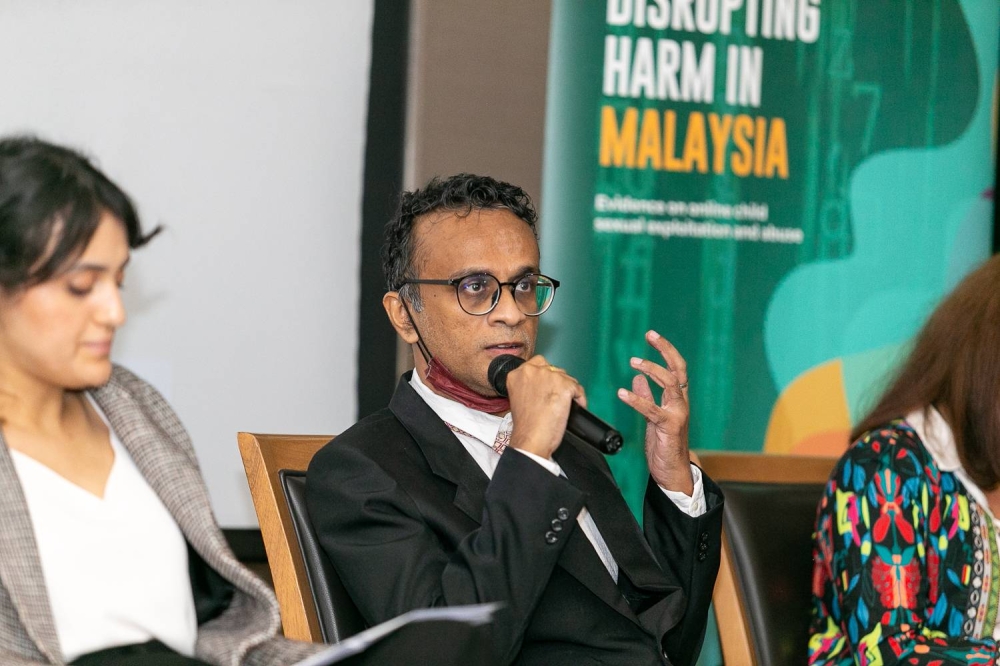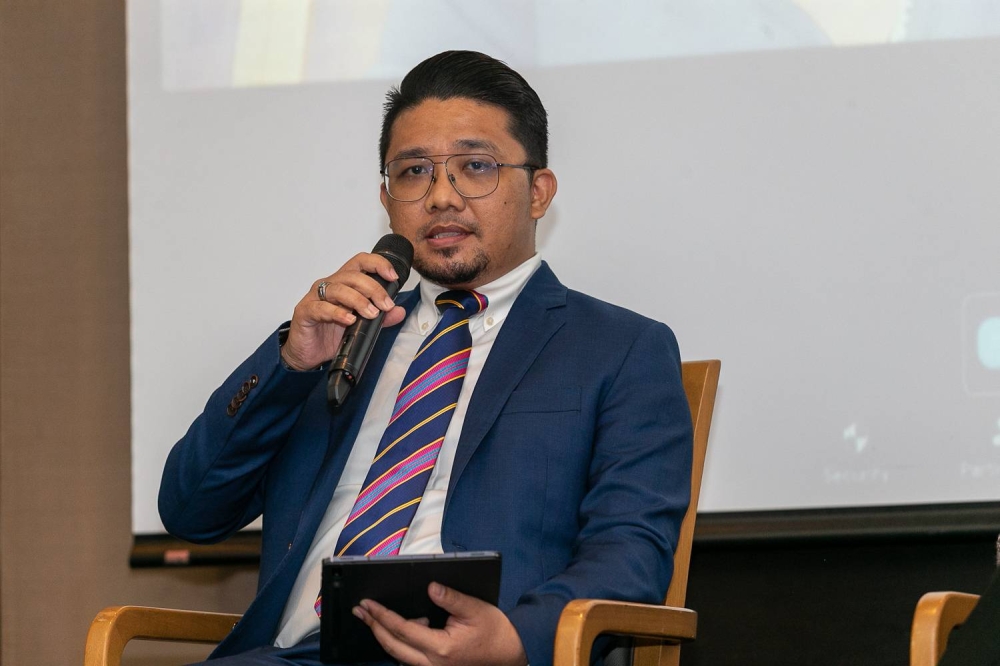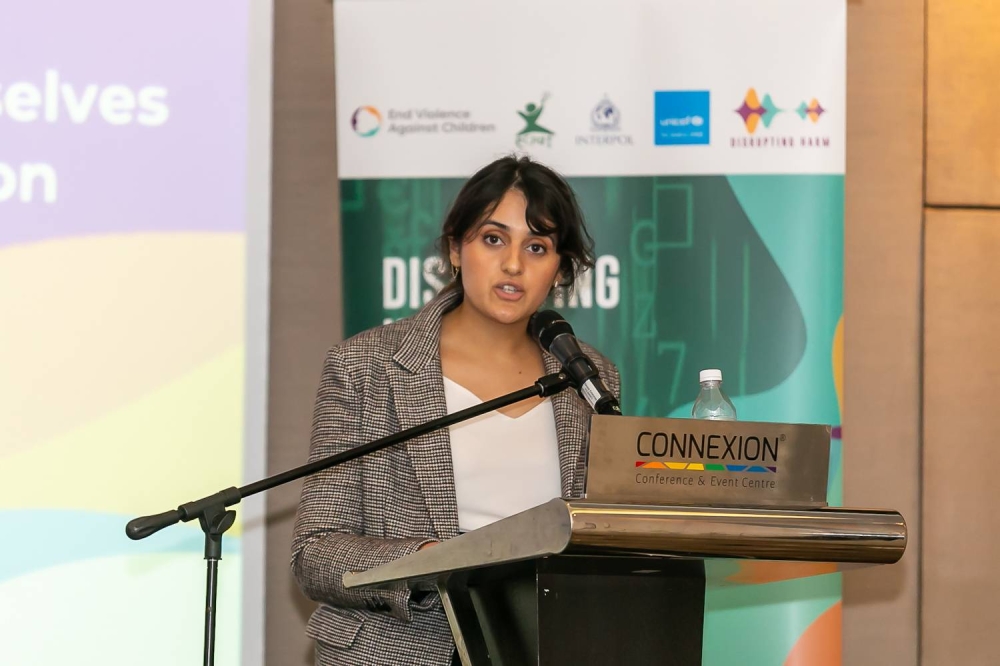KUALA LUMPUR, Sept 29 — In order to tackle and prevent online children sexual exploitation and abuse (OCSEA), a report launched today has recommended among others exposing both adults and children to age-appropriate and gender-sensitive sexuality education, in addition to raising awareness of hotlines of helplines.
The report titled “Disrupting Harm in Malaysia: Evidence on online child sexual exploitation and abuse” proposed for the Education Ministry’s Curriculum Development Department to lead the development, in collaboration with the Ministry of Health, child protection experts and early childhood professionals, and in consultation with other relevant stakeholders which include religious groups.
“Programmes should cover issues such as consent, personal boundaries, what adults or others around children can and cannot do to them, risks and responsibilities when taking, sending and receiving sexual images, and how to say ‘No’ to others,” it said.
“Comprehensive sexuality education should cover OCSEA and how technology plays a role in the sexual abuse and exploitation of children and equip children to recognise inappropriate interactions both online and offline.”
The report also suggested school teachers receive additional training in OCSEA and support when they face difficulties in teaching sex education, as they are the preferred source of information for children.
Besides that, the report said children, caregivers, teachers and those working with children need to be taught the full extent of the risks of sharing sexual content online.

The report recommended against restricting children’s access to the internet as punishment, as it only reduces online risks for the short term, and could lead to children being less likely to voice concerns about harm or other unwanted experiences they encounter online.
It also said that 32 per cent of the children surveyed consulted their friends on sex-related matters and that children may prefer to seek answers to questions about sex online compared to relying on an adult, therefore trusted adults should promote reliable online sources of information.
It also mooted supporting caregivers when they do not feel comfortable discussing sexual matters, to encourage open dialogue with children about OCSEA.
In addition, the report also identified hotlines and helplines as formal reporting mechanisms for children facing OCSEA cases, in addition to the police.
However, it highlighted that not all of them are well-resourced or adequately visible, which may create confusion for children who are trying to seek help.
“Data indicates that a majority of formal reports to law enforcement were made by adults, or by children themselves with the support of an adult,” it said.

“A further consideration would be to streamline existing hotlines and helplines and to create one dedicated reporting portal/number for children, that is free, accessible nationwide 24/7, confidential and has trained personnel who can offer online counselling.”
This comes as just 19 per cent of caregivers surveyed said they would call a helpline should their child be subjected to sexual harassment, abuse or exploitation.
Similarly, 56 per cent of the children surveyed would not know where to go if they or a friend were sexually assaulted or harassed.
The report explained that there are two types of helplines: child sexual abuse materials (CSAM) hotlines that work with the industry and law enforcement agencies to take down content, and child helplines that provide immediate crisis support, referrals and ongoing counselling and case management services.
It identified three helplines: the Talian Kasih 15999 hotline (formerly known as Talian Nur) run by the Ministry of Women, Family and Community Development, and the Protect and Save the Children Hotline and Lapor Predator Reporting Portal run by civil societies.
Meanwhile, there are three CSAM hotlines: the Cyber999 Help Centre and Content Forum Malaysia under the Ministry of Communications and Multimedia, and the International Watch Foundation’s Malaysia reporting portal.

This comes as the survey identified that none of the children who had experienced OCSEA reported their ordeals either to the police or social workers, with only one respondent reporting it to a hotline.
It also found that 12 out of 38 children who had experienced OCSEA in the previous year did not even tell anyone, with those who disclosed their situation were most likely to confide in a friend (18 children) or a sibling (11).
Other recommendations by the report included for the government to invest in digital literacy programmes, engage internet service providers and platforms to address CSAM, and address challenges faced by OCSEA victims to seek justice, and expand the laws to cover CSAM and OCSEA properly.
“Findings indicate that cases of OCSEA are sometimes prosecuted under provisions criminalising homosexuality (Sections 377A and 377B of the Penal Code) instead of under the relevant provisions of the Sexual Offences against Children Act,” it revealed.
The US$7 million (RM32 million) study was funded by the Global Partnership to End Violence Against Children and was carried out through the partnership of civil group End Child Prostitution in Asian Tourism (ECPAT) International, the Interpol and United Nations’ Children’s Fund’s (Unicef) Office of Research.
In Malaysia, researchers interviewed 995 children aged between 12 and 17 who had used the internet in the three months prior, in addition to ten semi-structured interviews with 11 criminal justice professionals, a survey of 50 frontline service providers that included outreach youth workers, social workers, and health and legal professionals working with children’s cases, and interviews with 18 government officials.





















